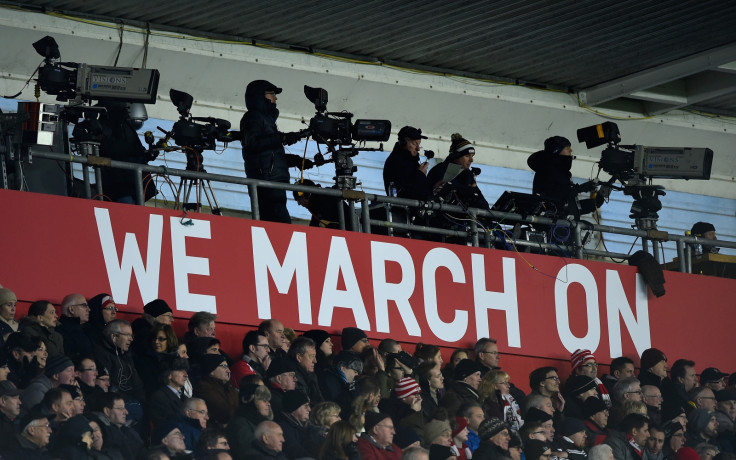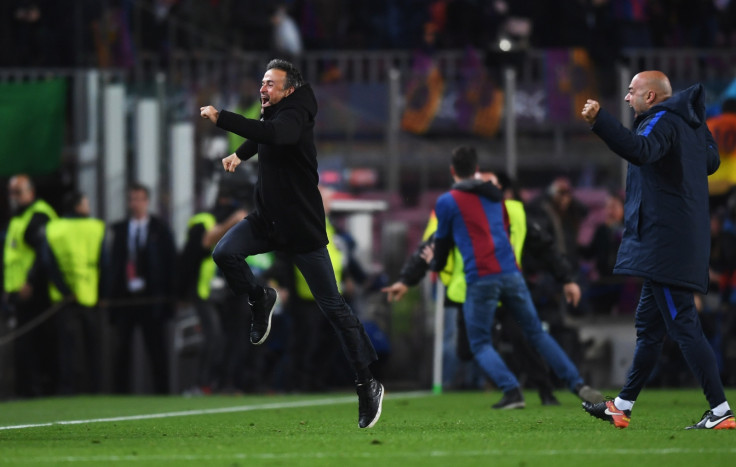Decline of football underlined by unbalanced ratings war
The Champions League and the FA Cup will enjoy contrasting viewing figures this week.
The desperation of the big clubs to finish in the top four of the Premier League and qualify for the Champions League each season is clear for all to see. Equally obvious is how little top-flight clubs value the FA Cup. But do these priorities represent the hopes and dreams of sports fans? And does anybody in authority actually care?
Each season a half-dozen English teams set out with a realistic ambition of winning the Premier League. Leicester City might have subverted the established order in 2015-16, but, in any other year only Arsenal, Chelsea, Liverpool, Manchester City, Manchester United and Tottenham Hotspur can expect to challenge.
But, to those who hold the purse strings, claiming a place in Europe's premier competition is the minimum requirement as it guarantees a level of income to support the game's swollen financial hierarchy. Thus, failure to qualify for the European cashpoint tournament causes palpitations and recalculations within football's finance departments.
Qualification for the Europa League – for the teams just outside the top four of the Premier League – doesn't guarantee similar riches to Europe's leading club competition. Indeed, the Europa League is seen as more of a hindrance than a help: an annoying obligation and a drain on resources for the all-important business of finishing in the domestic league's top four.
This season the set of priorities has even extended beyond the confines of Premier League clubs and into the Championship, where those challenging for promotion to the top flight have also fielded weaker teams in the FA Cup to avoid spreading their squad too thinly.

But this pursuit of money over glory denies supporters the dream of seeing their team win a trophy. One day it may even backfire: will fans eventually tire of a season-in-season-out concentration on domestic survival over the romantic rewards of winning a cup competition?
This waxing and waning of interests also manifests itself in television ratings to a certain extent, but in these days of fragmented broadcasting markets this is a complicated relationship to measure. When the Champions League was shown on ITV the games attracted regularly large audiences. Now that the competition is broadcast on BT Sport the ratings are much smaller.
Fewer eyeballs watching via subscription channels also leads to less social buzz. As incredible as Barcelona's comeback against PSG was, how long will it resonate when so few witnessed it?

BT Sport – and before them Sky – worry less about the differential in viewing figures between the terrestrial days and the Pay TV era. BT and Sky's biggest concern is attracting more paying subscribers. Indeed BT Sport has just doubled-down on its Champions League investment by withdrawing the competition's terrestrial TV window via ITV highlights at a cost of £1.2bn.
The telecoms conglomerate will also provide games at 6pm and 8pm. Will more games tempt fans to subscribe? Does football run the risk of viewer fatigue? And for those that don't, does football run the risk of marginalising itself by making its best content unavailable?
Lincoln City, a Football League club themselves in the not-so-distant past (2011), now find themselves cast as non-league underdogs. While full credit is due to Lincoln, their FA Cup fifth round triumph over Burnley was aided by the Premier League club's decision to field a weakened team. Although to call it an act of giant-killing is to stretch the definition of "giant": Burnley are a premiership team but this is a recent fact and, with a little ground and relatively small fan base, is certainly not guaranteed to continue for the long, or even medium, term.

This weekend there will be subversion to the argument when Arsenal play The Imps in the FA Cup quarter finals. Arsenal, comprehensively deposited out of the Champions League, are unlikely to win the Premier League, but would love to win the FA Cup, not just as a consolation prize but as a trophy to placate a fanbase that demands glory as well as glamour.
To fans who don't support Arsenal or any of the big six the FA Cup is a dream. Sure, playing in the Premier League brings lucre; prestige and the allure of the world's most famous players. But fans fantasise about winning the FA Cup, not staying in the Premier League. And for the teams who are unlikely to ever feature in the top flight, the FA Cup is a champagne dream over the bread and butter diet of domestic tribulations.
This weekend Lincoln and Millwall will find themselves being supported by football's great unwashed: the fans who don't think that the minimum requirement is a trophy and Champions League football every year. But how many of them are left?
© Copyright IBTimes 2025. All rights reserved.






















